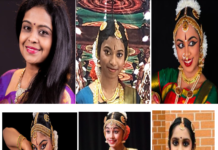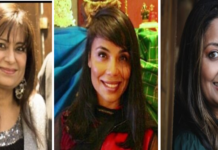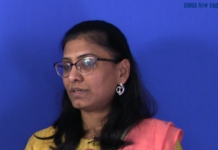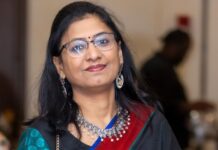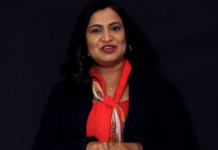Sunila Thomas-George serves as a Commissioner with the Massachusetts Commission Against Discrimination (MCAD). First Appointed in November, 2007 by Governor Deval L. Patrick, Commissioner Thomas-George was reappointed again in 2009 and in 2012 for a third term. As a Commissioner, Thomas-George is responsible for the administration, adjudication, and education of civil rights matters for the Commonwealth of Massachusetts.
As the first person of Asian descent to be appointed by the Governor as a Commissioner for the MCAD, she has broken barriers and broadened public understanding of what constitutes discrimination, especially for South Asians.
She served as the Acting Chief of Enforcement where she directly oversaw the entire Enforcement Division of the MCAD, which consisted of over 50 employees including attorneys, investigators, mediators and support staff. She also serves as a faculty panelist in many seminars with the Massachusetts Continuing Legal Education (MCLE), the Massachusetts Bar Association, and Boston Bar Association. Commissioner Thomas-George is an Advisory Board Member for the South Asian Bar Association of Greater Boston (SABAGB) and a member of the Women’s Bar Association in Massachusetts. She is the recipient of the 2001 Manuel Carballo Governor’s Award for Excellence in Public Service and received the 2004 Executive Branch Award for Excellence in Government Legal Services. She is a graduate of Wheaton College (BA) and Western New England University School of Law (JD).
INDIA New England News: Please tell our readers about your work and what you enjoy most about it?
Sunila Thomas-George: As the first person of Asian descent to be appointed by the Governor as a Commissioner for the MCAD, I have broken barriers and broadened public understanding of what constitutes discrimination, especially for South Asians. As a Commissioner, I have seized opportunities to shed light on the ways Asian American immigrants and individuals with Asian heritage are denied access and equal opportunity because of racial, ethnic, and religious characteristics.
My work at the MCAD gives the members of our community a voice, often in ways that have not previously existed. I am fortunate to be able to help draft and enforce laws aimed to ensure that myriad constituencies — including women, people of color, and immigrants — achieve equity as employees, tenants, homebuyers, students, borrowers, and consumers. I cherish the chance to stand up for both my people and all people as an Indian-American woman.
As a Commissioner, one of my core responsibilities is to adjudicate cases at hearing and issue decisions that help create a just and equitable society. While I am particularly passionate about addressing discrimination, it is of course also vital to ensure that those accused of participating in discrimination are treated respectfully and fairly.
I am honored to serve the people of the Commonwealth. Public servants should be held to the highest standard of efficacy, and I take pride in being part of seeing to it that this particularly meaningful agency runs well.
INE: To which charitable, community and professional group do you belong and why?
ST: I am a proud member and Advisory Board member of the South Asian Bar Association of Greater Boston’s (SABAGB). I am also a member of the Women’s Bar Association. Both organizations contribute to the success of South Asians and women in the field of law, where we have been historically underrepresented. Both are actively involved in vital pro bono work and advocacy.
INE: What are you hobbies and interests?
ST: I accepted the position of Commissioner at the Massachusetts Commission Against Discrimination when my sons were 3 and 5 years old. So, my time outside of work focuses on my family, and spending quality and memorable time with Noah and Mikey. Raising Indian Americans boys to be proud of their heritage, deeply rooted in their culture, and thrive as U.S. citizens is my mission and my joy. I am also active as a volunteer in their public schools in Lexington, where there is a large Asian American population. I am also devoted to other members of my family, including spending a great deal of time with my mother, who lives in western Massachusetts. In my infrequent spare time, I love to read novels.
INE: In what way you feel you have most positively influenced or served the local community and your company/organization and professional field?
ST: I hope and believe that I have made a difference to the quantity and quality of investigations and adjudications at the MCAD, and thus made the Commonwealth of Massachusetts a more inclusive and equitable place to live and work.
INE: Your rare talent?
ST: My belief in the talents possessed by all humans drives me to be passionate about my work.
INE: Your favorite book?
ST: Interpreter of Maladies by Jumpha Lahiri
This collection of short stories was written by an author whose Bengali parents moved to the United States when she was two. Some of her most compelling stories describe her struggles as an Indian American caught between two cultures. I was fascinated by her writing as a woman born to Indian parents, but raised from birth in the United States.
INE: Your favorite quotes?
ST: “Injustice anywhere is a threat to justice everywhere” Martin Luther King, Jr.
Dr. King was a follower of Mahatma Gandhi. Both preached about the necessity of achieving civil rights for all, and the value of non-violence. This quote embodies the passion I have for the work I do, and the deep connection between the Indian-American community, the African-American community, and all communities impacted by oppression.
INE: Who inspires you the most?
ST: I have been fortunate to meet a number of well-known leaders. I am, however, most profoundly inspired by “ordinary” women who have suffered tremendous tragedy, yet are able to get up every morning and lead the way toward a better world. Whether lobbying for new legislation, raising awareness of a little known issue, or advocating for their child’s well-being or special needs, women who transform their sorrow into action inspire me most.
INE: Your core value you try to live by?
ST: One of my core values is my belief of putting family first.
I recently lost my father after a long illness. My father arrived in the U.S. in 1960, and became both a professor of sociology and a priest in our Indian Orthodox church. He was a pioneer and a visionary, and beloved by many. After a debilitating stroke in 2013, I attended to him for ten heartbreaking months. It was an agonizing time for him, physically and emotionally, and also for my mother, my sister, and me. During that time, I devoted hours each day to his care and to supporting my mother. No matter how imperative my work is, my first priority will always be my family. I am proud of every moment I spent with him, and miss him daily.




